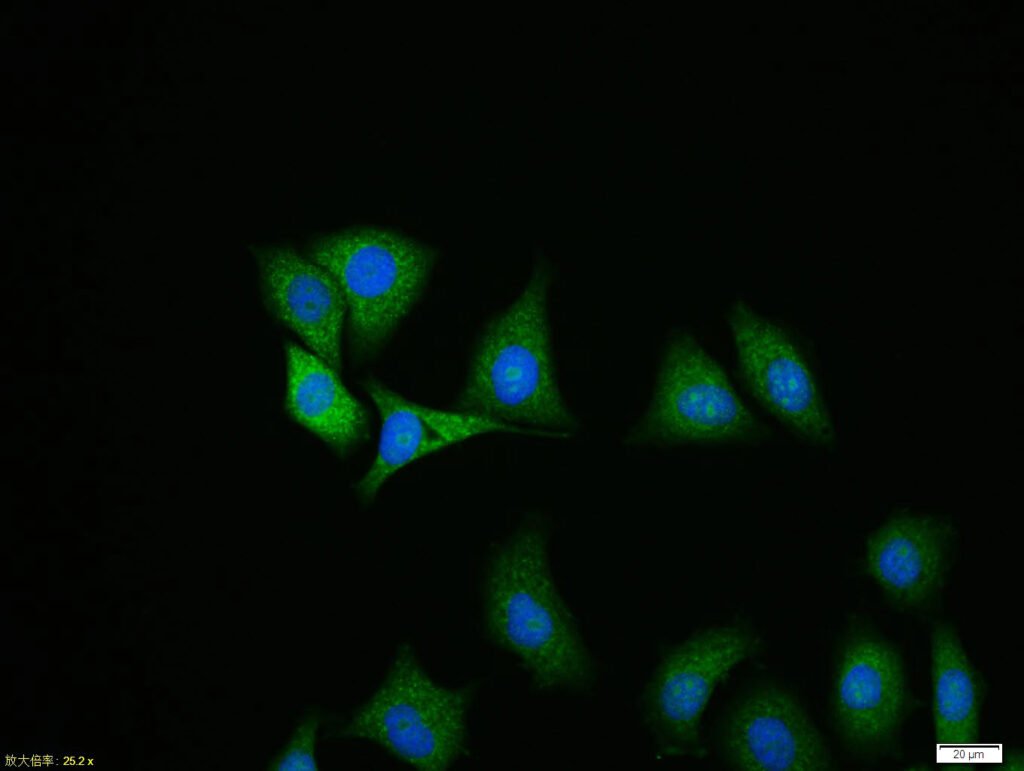
Ubiquitin polyclonal antibodies are designed to detect ubiquitin, a highly conserved, small regulatory protein that is found in almost all eukaryotic cells. These antibodies are generated by immunizing animals (commonly rabbits) with ubiquitin or ubiquitin-conjugated proteins, resulting in a mixture of antibodies that recognize multiple epitopes on the ubiquitin molecule. Ubiquitin plays a central role in the ubiquitin-proteasome pathway, a system critical for regulating protein degradation, cell cycle progression, DNA repair, and response to oxidative stress. Polyclonal antibodies against ubiquitin are widely used in research to study protein ubiquitination, identify ubiquitin-modified proteins, and investigate pathways related to proteostasis and cellular stress responses. In clinical and pathological settings, they are valuable tools for detecting abnormal protein aggregation and ubiquitin-positive inclusions, which are characteristic of various neurodegenerative diseases such as Parkinson’s and Alzheimer’s disease. The broad epitope recognition of polyclonal antibodies enhances their sensitivity, making them particularly effective in applications such as western blotting, immunoprecipitation, and immunohistochemistry.
Rabbit
Polyclonal
Human
This antibody detects the presence of intracellular ubiquitinated filamentous inclusions in the periphery of senile plaques and neurofibrillary tangles in Alzheimer's disease and Lewy bodies in Parkinson's disease.